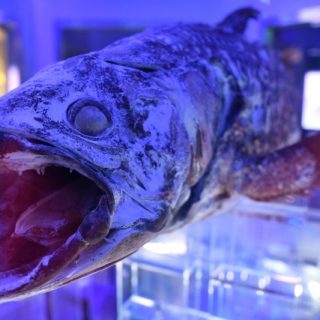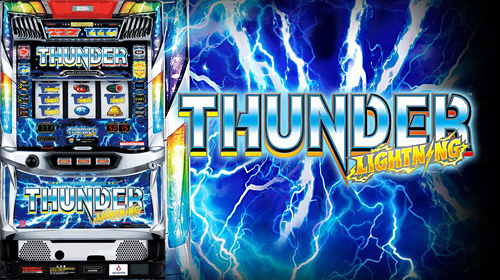4680個のセルを使用すれば、電気自動車の航続距離を15%以上伸ばすことができ、コストも削減できる。
パナソニックは、早ければ来年にもテスラ向けの大容量バッテリーの量産を開始する可能性があります。4680セルは、電気自動車の航続距離を15%以上伸ばすことができると言われています。日経が指摘するように、1回の充電でモデルSの航続距離を650km(404マイルほど)から750km(465マイルほど)にまで伸ばすことができるのだ。
日経によれば、バッテリーは従来の2倍の大きさだが、エネルギー容量は5倍に増えたという。そのため、自動車に必要な電池の数は少なくなり、すでに10〜20%製造コストが安くなっている。EVのコストのうち、電池の占める割合は3割と言われています。コストが下がれば、EVの価格が下がり、電気自動車への移行を早めることができます。さらに、航続距離が伸びれば、充電の頻度も少なくなります。
テスラの長年のパートナーであるパナソニックは、4680を生産するための新しい設備に約800億円(7億400万ドル)を投資すると報じられている。日本にある既存の工場を拡張し、まずはそこで電池を作ると言われている。日経によると、同社は今年から小規模の電池製造を開始し、安全で効率的なプロセスを開発した後、2023年に量産に入る予定です。その後、他の国でも電池を量産する可能性がある。
同社はロイターに対し、2022年に試験生産ラインを設置することを確認したが、大規模な電池の生産をいつ開始するかは明言しなかった。「量産に向けたさまざまな選択肢を検討している」という。
パナソニックは、テスラからの要請を受けて、この電池の研究を開始した。パナソニックのバッテリー部門の責任者は11月、テスラが優先だが、他の自動車メーカー向けにこの電池を生産することも否定していないと述べた。テスラのイーロン・マスクCEOは以前、自社で電池を製造する計画だが、今後も他のサプライヤーから調達する予定だと述べていた。
テスラは2020年9月に開催された「バッテリーデイ」のイベントで4680を発表した。当時、マスク氏は、この電池やその他の開発により、テスラが25,000ドルのEVを販売し始めることが可能になると述べていた。
<おすすめ記事>
・【科学が証明】第二言語習得論 このおすすめの学習ツールで英語をマスターする
・【株式投資でマネーマシンを作る】管理人のポートフォリオ・スペック
(管理人は米国株式に投資をしているので、英語学習をするようになりました。勉強をする意義があると継続できるし、苦痛が少なくて済むとおもいます)
・テスラの蓄電池(パワーウォール)について
【英語学習 EV】パナソニックのテスラ用高容量バッテリーは、2023年に生産開始の可能性がある
Panasonic's higher-capacity Tesla battery could enter production in 2023
The 4680 cells could boost EV ranges by over 15 percent and reduce costs.
Panasonic could start mass producing larger-capacity batteries for Tesla as soon as next year. The 4680 cell is said to boost the range of electric vehicles by over 15 percent. As Nikkei notes, that could boost the range of the Model S from 650km (404 miles or so) on a single charge to 750km (around 465 miles).
Although the battery is said to be twice as big as previous versions, it has a fivefold increase in energy capacity, according to Nikkei. As such, cars need fewer of the batteries, which are already 10 to 20 percent cheaper to produce. It's estimated that batteries account for 30 percent of the cost of EVs. A cost reduction could make EVs more affordable and hasten the transition to electric vehicles. What's more, a longer range means drivers won't need to charge batteries as often.
Panasonic, a long-time partner of Tesla, is reportedly investing around 80 billion yen ($704 million) on new equipment to produce the 4680. It's said to be expanding an existing plant in Japan and making the batteries there to begin with. Nikkei reports the company will start making the cells on a small scale this year to develop safe and efficient processes before entering mass production in 2023. It may mass produce the batteries in other countries later.
The company confirmed to Reuters that it was setting up a test production line in 2022, though didn't say when it will start making the batteries at a larger scale. "We are studying various options for mass production," it said.
Panasonic started working on the cell following a request from Tesla. The head of Panasonic's battery division said in November that the company hasn't ruled out producing the cell for other automakers, though Tesla is its priority. Tesla CEO Elon Musk previously said that although his company plans to make its own batteries, it would continue to source them from other suppliers.
Tesla announced the 4680 at a Battery Day event in September 2020. At the time, Musk said the cell and other developments could enable Tesla to start selling a $25,000 EV.





